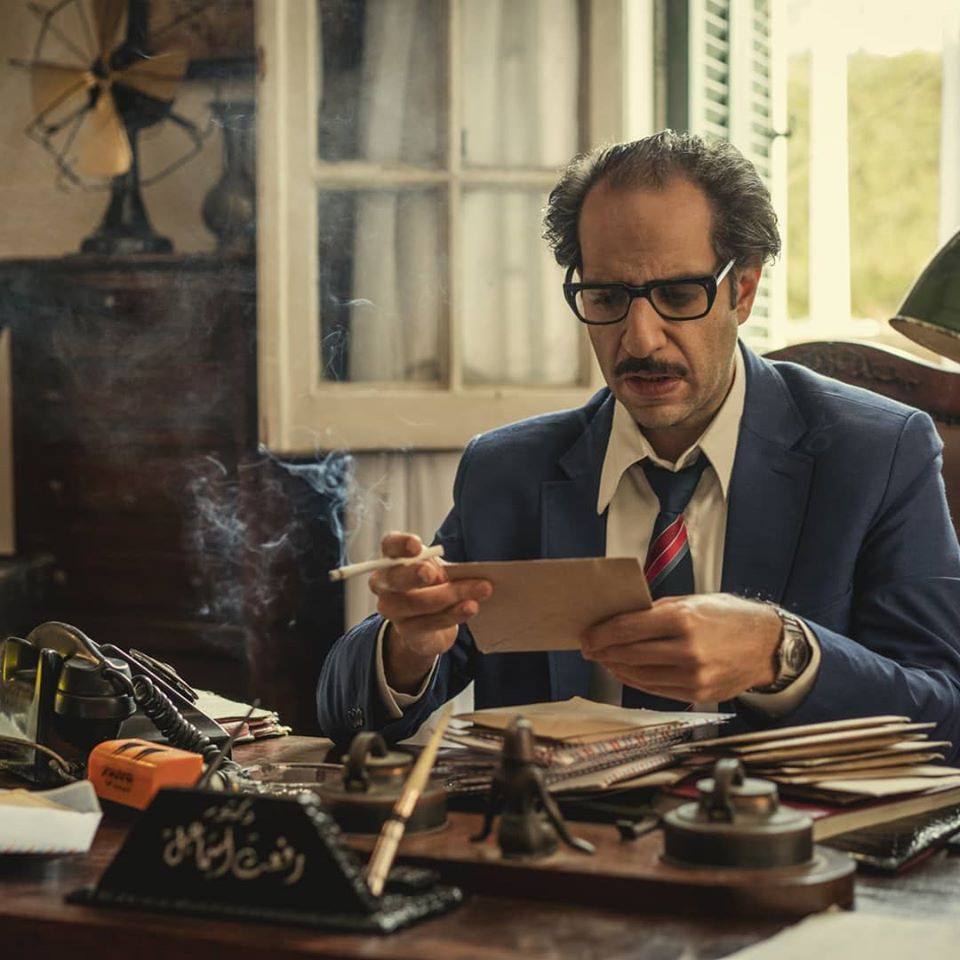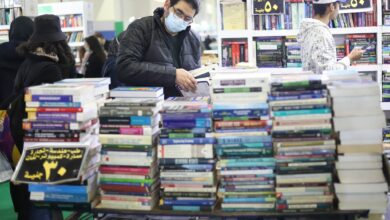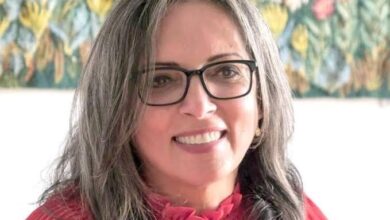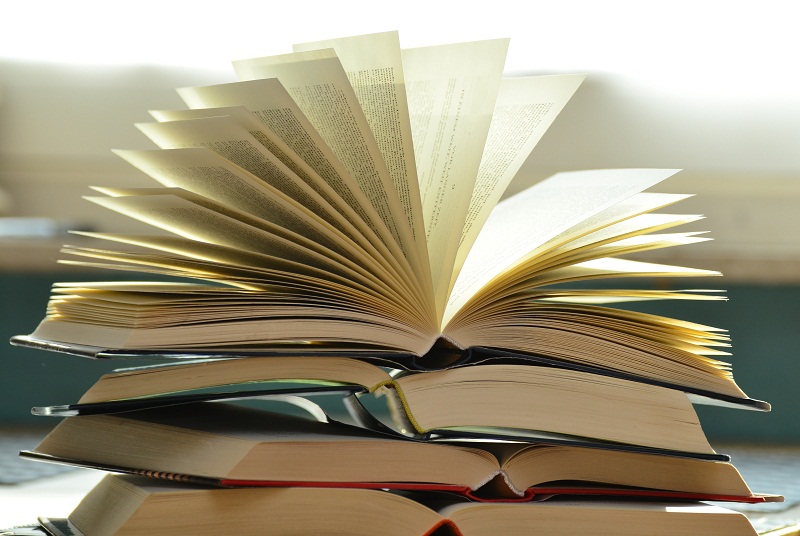Many might receive "Albawtaka Review’s" quarterly newsletter in their inbox, but few know the story behind the literary journal and the translated anthologies that “Albawtaka Publishing” has been putting together over the past five years.
Behind the online portal sits Hala Salah Eldin, the single editor and translator of “Albawtaka,” working continuously on putting the translation project together. Her aim is to introduce Arab readers to contemporary short fiction, written in English. The 33-year-old translator is simply industrious. To date, she has translated three anthologies: “Sharp Senses,” “Ghosts With No Maps,” and “Hidden Faces.”
In Arabic, "Albawtaka" means the crucible, and that is the role to which Salah Eldin aspires.
“Translating literature is much like putting two precious metals into one pot and melting them down to reach a new form of rareness and understanding,” she tells Al-Masry Al-Youm.
Although it is not a walk in the park to sustain a free literary review for more than five years, Salah Eldin remains optimistic. Her goal is to share what she believes to be “good fiction” with Arabic readers. And earlier this year, she won a grant from The Arab Fund for Arts and Culture to publish six online anthologies.
“I believe that we Arabs are missing out on a lot, for not writing half as many short stories [as those published in English], and for not reading them,” says Salah Eldin. “I'd like to believe that I'm this visible link connecting worlds together… Literary preference is complicated though, and it's very personal … If you look closely at the review, you are looking at me, fragmented into tales of a mosaic wall."
Asked if she is worried about the size and scope of "Albawtaka’s" production given she is working alone, Salah Eldin responds with a "No." In fact, she has single-handedly translated 82 stories and introduced her readers to 70 authors, writing in English.
“Numbers don’t count for me. You put a brick over a brick, slowly and persistently to end up with a wall,” she says. Whereas she welcomes contributions, she is quick to reiterate that most of the submissions she receives are “mediocre.”
Salah Eldin builds her impression of translators through their choices. "We search for ourselves through narratives. That's why I'm always eager to know translators' views of life, through their choices,” she says. “It’s not only our demeanors that show who we are, but also, and most importantly, all the invisible people that we see flitting around us when we read and like a story. Teamwork is great, maybe in construction, but I believe in the value of individuality, in proving some artistic identity and standing by it. So read a story, if you found it excellent, translate it, and pass it along to me to have a look."
Award winning stories, as well as those centered on incidents of politics or terrorism or have an Arab character are not part of Salah Eldin’s choices. Although such themes might appeal to readers, Salah Eldin does not “move along with the wave.” Rather, she chooses stories reflecting lives, visions and well-woven characters.
"Politics have metamorphosed our world into segregated communities, loosely bound together by mutual ignorance and stereotypes,” says Salah Eldin. “It has failed, and will continue to fail – unless it’s accompanied by a cultural movement that doesn’t hit Arabs in the face with blunt orders and political lectures."
She believes that political solutions have proved insufficient because the real reason for the pain remains largely ignored: “Arabs don’t know about other societies.” For Salah Eldin, fiction encompasses identity, existence, language, and visions. “This kind of understanding frees a liberal space in the mind and therefore allows for a new form of mediation between the self and the world without loss of face," she explains.
Salah Eldin aspires to offer varied perspectives free of prejudice through her work. And indeed, her selections make readers feel they are reading rich content – with an occasional elitist voice – that remains very experimental.
Translation is like excavation, she says. "I can see gems in the dirt, so I simply dig them up, and polish them. I don’t try to carve any of them, as carving means spoiling. They are being presented to readers in full bloom."
"Some stories can be experimental, especially science fiction and fantasy stories; others tend to be as realistic as wars. Working in a non-linear way, I sometimes surprise myself with an unexpected urban story that has one sole advantage: its technique," she adds.
Salah Eldin does not shy away from criticism. She might occasionally be booed by readers, but she takes her chances anyway, hoping to introduce her literary choices to readers "uninvited" yet "unobtrusively."
What does in fact bother her is censorship. "In a conservative male dominated society, I'd say that censorship is definitely the worst. It seems irreparable, nonnegotiable, as it affects literary texts themselves, and there’s no way around it," she explains.
Before printing a book, editors must sign a document with the printing house, declaring they take full responsibility for the book’s content, she explains. If a censorship officer ever finds a "dirty" word in the book, the printing office presents the document to the censors. “I don’t blame them as they would be fined or their business will be interrupted for a period of time,” says Salah Eldin. “The sad thing is that even workers in the printing office play the role of censors. Some of them can hardly read, but they take it upon themselves to be guardians of morality."
The media exercises censorship as well, says Salah Eldin, citing the case of an English literature professor at Cairo University who was severely attacked in the press for teaching Tanith Lee's short story "Snow-Drop" that included lesbian scenes.
What’s even “sadder,” says Salah Eldin, is that some translators practice self censorship. A governmental cultural institution translated a novel by Doris Lessing five years ago, yet the sexual scenes were missing. “Lessing was furious, it was said. Censorship officers have nothing to do with it. The translator simply knew his boundaries,” she explains.
Salah Eldin never introduces changes to characters. “My rule is to translate vulgar language in English into vulgar language in Arabic; profanity is no exception. Though fiction is being produced in a society that doesn’t always see the difference between opinion and fiction, I never go for it aiming to create a ‘clean’ text. It is certainly not my place to bowdlerize texts. Slang words and profane language are there for a purpose. If cornered, I’d choose not to translate the text at all, maybe in another lifetime,” she says.




